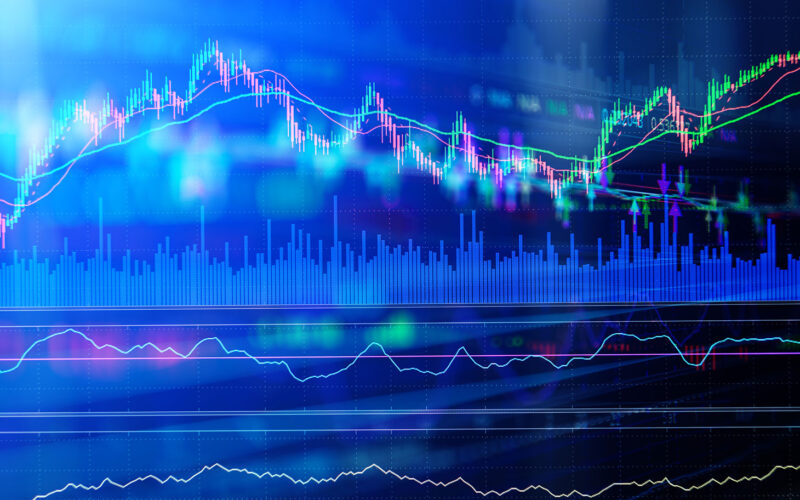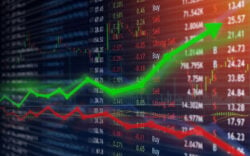We’re in lockdown, I know.
But financial markets price in the future, not the present. They tend to turn the corner before reality does.
Not that they’re particularly good at predicting crises. But they do a decent job of figuring out when things have bottomed. In hindsight, anyway.
The idea that we’re in for a recovery from here is enticing. After all, how much worse could it get than what we’re in now?
Given that, what are the chances of a decent stockmarket recovery from here?
Pretty good, you might be thinking. There must be a recovery, at some point, after all.
Is Covid-19 a buying opportunity for investors? Buy stocks at peak fear?
Answering that question is the theme of this week’s Fortune & Freedom. It’s a little more timely and topical than last week’s investigation of inflation and deflation. Those are longer term issues. And therefore, in my view, more important.
But there’s nothing like the here and now. Unless, of course, you’re writing about financial markets. In which case the here and now is practically history. The real question is what happens next. That’s what moves markets and sets prices. The future.
We have plenty in the pipeline for you on the question of lockdowns. But for today, let’s consider the question of whether you can unlock an economy as easily as you can lock it down.
Back to normal?
Nobody thinks the world will go back to the way it was before Covid-19. Not specifically.
But the real question is how close we’ll get. And what will change for good. Or worse…
In other words, how many people will continue to work from home? How many people will use sites like Zoom? Will people go shopping on their high streets, or stick to Amazon and Ocado?
After the pandemic is over, of course. That’s the key.
It’s tough answering these questions right now because, being back in lockdown, our usage of lockdown tech is back at extreme levels and our usage of old-tech is back at low levels. Zoom is dominating the Tube again.
For what it’s worth, I have a long history of swapping back and forth between the office and working from home. So perhaps I can shed some light on that one.
Lockdown blues and working from home
Hayfever kicked me in the face for four years before I finally left our Australian sister company’s Melbourne office and moved back to tropical and unseasonal Queensland, working from home for the first time.
Then I worked from the UK office in London for a few months because working from home and enjoying travel had made me too lazy.
After a break working as a trapeze artist in Thailand, I went back to working from home in Perth, Australia. Then I returned to the London office once more, intending that to be permanent. The pandemic had other ideas…
I feel I’m uniquely qualified to tell you that the working from home trend is permanent, but incredibly complex and messy in practice. It won’t work for many people in the extremes we’re seeing it in today. Simply buying stocks that you think will benefit from it will prove a challenging strategy.
And, more importantly, it’s a boom that may have surpassed us already. The market priced in a long pandemic with a series of lockdowns and working from home thereafter. The companies that benefit from lockdowns boomed on the stock market.
But we’re likely to see the working from home trend go the other way after the pandemic opens up.
That’s why pandemic booming stocks fell on Monday as the Pfizer vaccine news broke. The prospect of millions of people around the world returning to the office interrupted the sci-fi like predictions of home offices on the beach.
And that’s my real message to you today.
Stocks have predictions too
It’s so easy for investors to be misled by predictions of the future. Even when they’re right. Because, if you want to be a step ahead of financial markets, you don’t just need to be able to predict the future. You also have to be a step ahead of the what the markets are expecting.
In other words, if you’re an absolute savant about the future of working from home, but he stockmarket has already priced this into the share price of stocks like Zoom, well, you’re not onto a winning bet.
If you’re right about the future, but the market expected an even bigger result, your predictions were wrong as far as investment prices are concerned.
Ironically, you can be wrong about the future, but still profit, if the market was even more wrong…
People understand this at the race track. The favourite’s odds aren’t very favourable. The real question is where the odds are mispriced. Where the bookies are wrong. That’s the question which makes gamblers rich and sports club owners successful.
But we forget the same lesson when it comes to investing. And we buy based on our predictions without considering whether the market already agrees.
Bringing all this back to the lockdown today, what does the market expect will happen in our future?
It’s a tough question.
Can you unlock an economy [as easily as the market expects]
I don’t think we’ve seen the real economic impact of Covid-19 yet. These things just take time.
The sub-prime crisis began in 2006 or even 2005 by some counts. It didn’t move markets till 2008.
The European Sovereign Debt Crisis began in 2009, only to peak years later. It takes time for economic consequences to strike.
But don’t forget, the real question facing investors is whether the market has figured this out yet.
Well, airline stocks are nowhere near their January levels. They’re not pricing in a return to normality. At least, not without turbulence on the way.
What is the market worried about?
Tomorrow we explore one particular reason why the markets may yet be too optimistic. Or why the stocks which caught Covid-19 haven’t recovered. In one word, debt.

Nick Hubble
Editor, Fortune & Freedom




